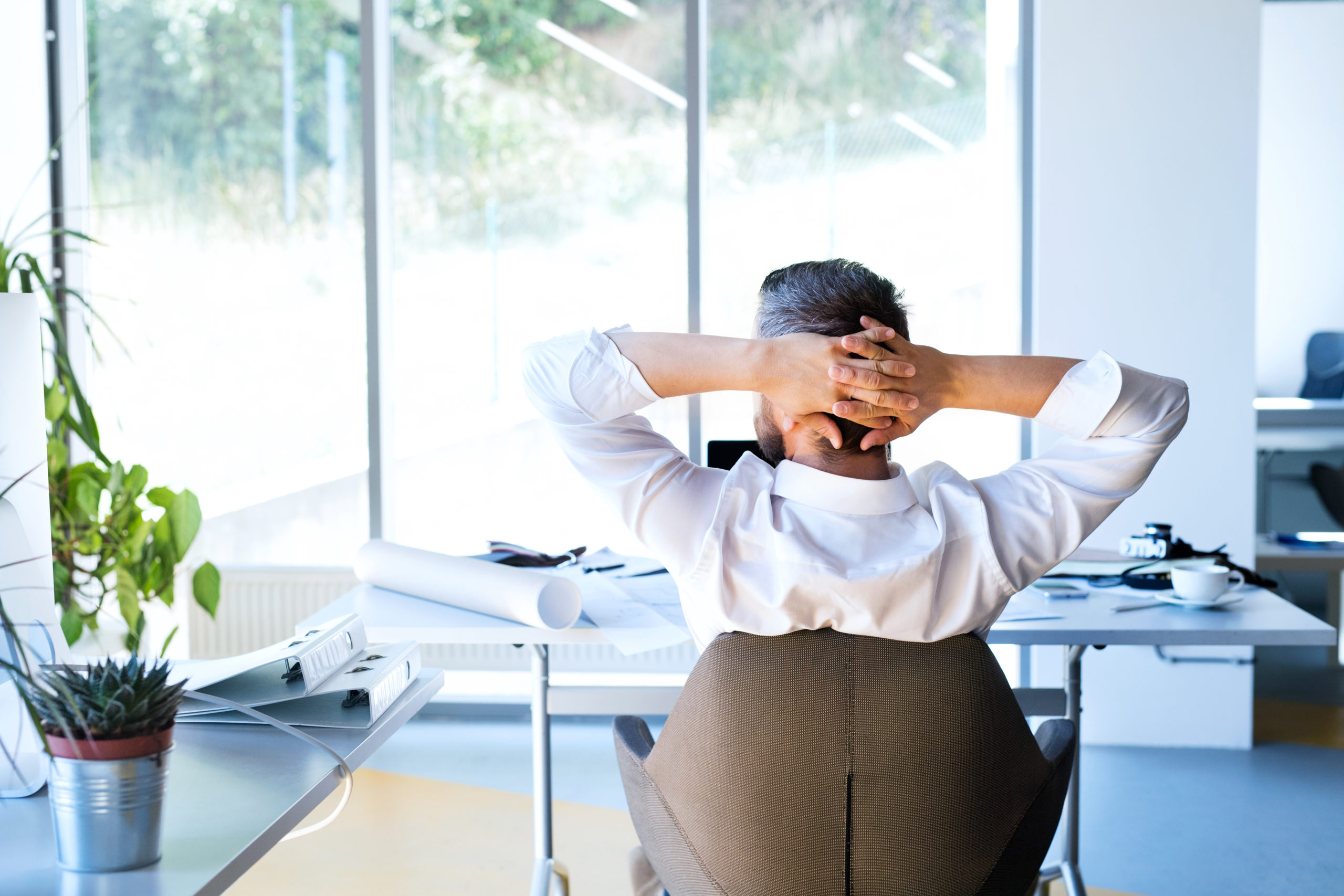Your workspace significantly impacts your health and wellness – leverage these proven strategies to make it work for you.
BY NICOLE DENAMUR
Why should a busy lawyer like you devote time and resources to improving your office space? On average, Americans spend 90% of their time indoors. To really drive this point home, take your age and multiply it by 0.9 — this is the number of years you have spent indoors. As a lawyer, a significant portion of those years are likely spent in your office.
Despite the substantial amount of time we spend indoors, most of us do not spend a corresponding amount of energy and resources creating and maintaining these spaces. As a result, we miss many opportunities to improve our health and wellness.
Leverage These Strategies to Support Health & Wellness
At work, you likely cannot make significant design or operational changes to the four walls of your physical office space. But there are small yet impactful changes you can make at work and in your home office.
Paying attention to the impact your physical space has on health and wellness is a form of self-care that is often overlooked. And as the volume of research increases, these strategies continue to move from “nice to have” amenities to necessities with research-backed benefits:
1. Address Air Quality: The air quality within our office spaces has a significant impact on our health and wellness, including factors like productivity.
For example, a joint Harvard/Syracuse study found that cognitive scores were 61% higher when levels of Volatile Organic Compounds (a common indoor air pollutant) were reduced and 101% higher when VOCs were reduced and ventilation rates were increased. If you are able to open a window and refresh indoor air, do so. If not, or if other factors like outdoor pollution or pollen are present, consider purchasing a personal air purifier.
2. Increase Access to Natural Light: There are numerous benefits of increased access to natural light, including improved mood, faster recovery times and increased productivity. If possible, open curtains or blinds and adjust your workspace so you have access to natural light or a view of the outdoors. Be mindful of glare and adjust screens or utilize shading devices as needed.
3. Incorporate Biophilic Design: Biophilic design strategies reconnect us with nature. In addition to increasing access to natural light and views of the outdoors, incorporating other natural elements into your workspace can have numerous positive health impacts, including reduced levels of anxiety and stress.
- Plants: Add a potted plant to your desk or move existing plants to within view of your workstation.
- Images of Nature: Incorporate images of natural scenes into your workspace. Studies have shown that viewing natural elements (such as wood surfaces) or images of the outdoors also has benefits.
Take A Leadership Role And Advocate For Broader, Firm-Wide Changes
Over the past few years, the “healthy” building movement, supported by certification systems like the WELL Building Standard, has gained significant traction and market adoption.
As a WELL Accredited Professional (WELL AP) and an attorney, I understand how the built environment impacts health and wellness, and the importance of utilizing all available tools to manage professional stress. I also believe that in light of the growing amount of research, there is arguably an obligation to create and foster “healthier” workspaces. This is particularly true in the context of the current pandemic, which has strengthened the connection between buildings and public health. If you are able, take a leadership role and advocate for broader office and building-scale improvements that benefit everyone who enters the space.
ABOUT THE AUTHOR

Nicole DeNamur is an attorney and subject matter expert in sustainable building design, construction and operations. She is also a LEED Green Associate, WELL AP, EcoDistricts AP and owner of Sustainable Strategies.
Disclaimer: This article is for educational and informational purposes only. It is not legal, medical or any other type of advice.

